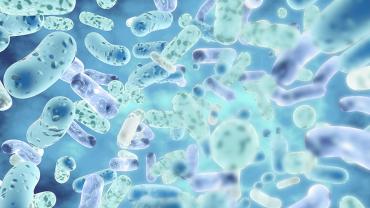
S-adenosylmethionine (SAMe) is a metabolite produced naturally in the body. It is considered the principal methyl donor in all human cells. SAMe supports more than 100 biochemical pathways, including the transmethylation process; research indicates this is particularly important in brain development.
Deficiencies in SAMe production have been linked to the incidence of certain neuropsychiatric diseases and delayed brain development. Disruptions in SAMe metabolism due to gene mutation or deprivation have been linked to neural tube defects and certain developmental disorders.
SAMe also plays a critical role in cell regulation and homeostasis. Autophagy is a cellular process induced by metabolic disturbances and oxidative stress. It is linked to aging, inflammation, genome stability, tumor suppression, and neurodegeneration. SAMe helps to regulate autophagy, and therefore helps support cellular health, healthy aging, and neurological function. It also promotes glutathione levels and influences inflammatory mediators by modulating pro-inflammatory gut bacteria. Certain beneficial gut bacteria may also produce SAMe. A laboratory study reported that Bifidobacterium bifidum BGN4 synthesized SAMe at significantly higher amounts than other Lactobacillus or Bifidobacterium strains.
Probiotics may also play a beneficial role in brain health. Recent research has linked mood disorders with the gut-brain axis. The composition of taxa within the microbiome is believed to play a role in mood health. A study of participants with depression and those who had an absence of depression were studied to assess the levels of short-chain fatty acids (SCFAs), a byproduct of beneficial bacteria in the gut microbiome. Those with an absence of depression had generally higher levels of SCFAs. Probiotics may also support the production of neurotransmitters, a healthy inflammatory response, and healthy brain-derived neurotrophic factor levels.
A recently published review by Ullah and colleagues explored the potential role of supplementation with SAMe and probiotics on parameters related to depression. The authors describe a double-blind, placebo-controlled clinical trial with adults who have subthreshold depression (SD). This condition refers to the presence of two or more depressive symptoms for 2 weeks without meeting the criteria for major depressive disorder (MDD) and/or dysthymia. Study participants were given SAMe and Lactobacillus plantarum HEAL9 for 6 weeks. Clinically significant improvements in symptoms related to depression, anxiety, and cognition were observed after 2 weeks when compared to a placebo.
Ullah and colleagues indicate the need for future studies in individuals with mild-to-moderate depression, as most current clinical studies are in those with MDD. Efficacy and safety studies are also needed in clinical research regarding SAMe, probiotics, and depression.
Future research is necessary, although the study by Ullah and colleagues indicates that SAMe and probiotics may help to support health in the presence of depression. SAMe and probiotics may also support cognitive function and a healthy mood.
By Colleen Ambrose, ND, MAT